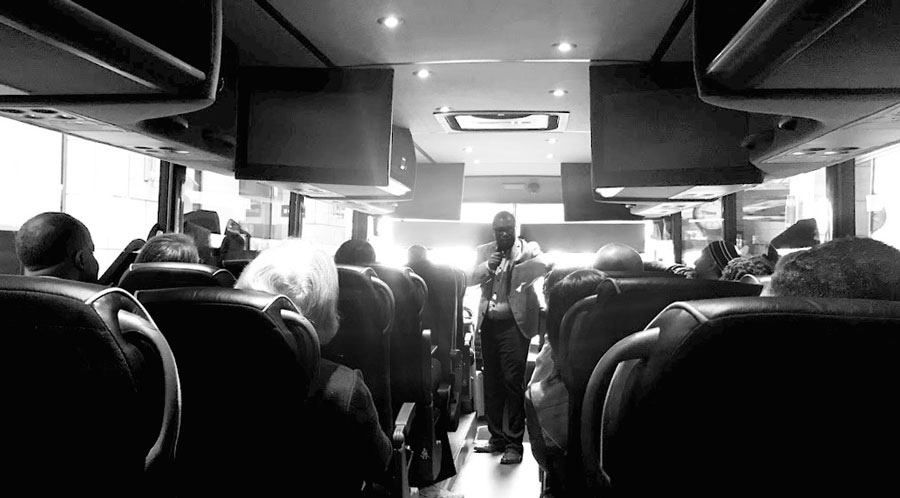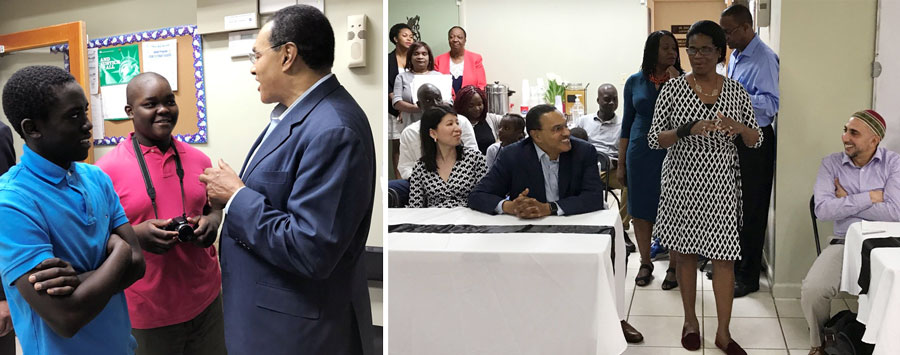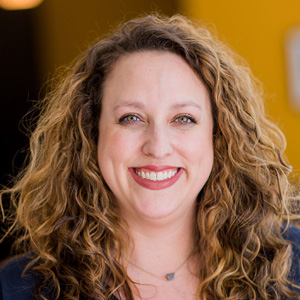Learning by Visiting: Marguerite Casey Foundation Board Meetings


Sunday morning began with a tour through Little Haiti, 3.5 square miles comprising the oldest neighborhood of people of Haitian descent in Florida — and one of the largest communities of Haitians in the U.S. Riding in a long yellow school bus, Marguerite Casey Foundation board members listened to Boukman Mangones, a Haitian-American architect, speak about the fight to preserve Little Haiti’s heritage and to combat the efforts of real estate developers who could displace the community.
Mangones was joined by Marleine Bastien, the founder and executive director of Family Action Network Movement (FANM), a Marguerite Casey Foundation grantee since 2016. Bastien met the board for the first time that day, in her home community, opening up her organization to ensure that funders know the struggles low-income Haitian families experience daily. When the bus tour ended, board members spent the afternoon in FANM’s office — joined by four other grantees — grappling with many of the issues troubling the community, including gentrification, climate change, and immigration.
“[The board] understands that families know what is best for their communities and grantee organizations know best how to empower those families. The board sees its role as led by those closest to the issues.”
The Marguerite Casey Foundation exists to help low-income families strengthen their voice and mobilize their communities in order to achieve a more just and equitable society for all. The Foundation’s quarterly, on-the-ground board meetings remove “living in poverty” from the sterility of statistics. Since its founding in 2001, the Marguerite Casey Foundation’s board has developed a culture that is inquisitive, principled, and clear on priorities. They understand that families know what is best for their communities and grantee organizations know best how to empower those families. The board sees its role as led by those closest to the issues. They learn by asking, listening, and then acting. That is why the founding board and leadership implemented on-the-ground board meetings starting in 2002, beginning with their first visit to grantee Community Coalition in South Los Angeles — a grantee that the Foundation continues to provide with long-term, sizeable general operating support.
Rami Nashashibi, Executive Director of Inner-City Muslim Action Network (IMAN) and board Member at Marguerite Casey Foundation, shared, “MCF site visits provide board members with an extraordinary level of engagement and interaction with organizers, leaders, and families most directly affected by the issues. I’ve had the honor of working closely with many foundations across the country for over 25 years, and I’ve never witnessed a board as committed to hearing from and responding to its grantees as I have with my dynamic colleagues at the Marguerite Casey Foundation.”
The Foundation’s two-day board meetings focus on learning and directly engaging with the communities where families live and our grantees do their work. Sunday is spent with grantees, families, and issue experts in the field. In this way, the board members learn about grantees and their constituents firsthand, not from a report. They can ask directly, “what can we do to help?” and “what do we need to know about the issues facing families right now?”
Monday begins with a period of reflection about the educational experience on Sunday, providing the board with time to discuss how to apply the information they heard directly to the Foundation’s strategy.


Over the past five years, 91 different grantees have spoken directly with board members at these meetings. On average, the board interacts with five grantees per meeting, ensuring grantees have time to share individual stories but also to discuss their collaborations across Equal Voice networks (strategic, cross-issue networks seeded by the Foundation). We believe this practice sets us apart from the field and leads to the strong foundation-grantee relationships we are proud of. We believe it is why grantees have rated us in the 85th percentile of foundations in terms of understanding the challenges organizations are facing.
“It is not often that we get to meet with the board of our funders, and it was very powerful to speak to them all,” said Bastien about her experience. “They were able to see firsthand the million things that are important for low- to moderate-income families but that cannot fit in a grant; and most importantly, they heard it directly from the members themselves. Members welcome them, share their stories and their hopes, and discuss how FANM continues to make an impact on their lives.”
“[G]rantees can show how campaigns have evolved over time — board members see firsthand the shifts in families’ landscapes and the impact of long-term organizing and policy advocacy.”
We don’t limit these opportunities to new grantees. Over the past five years, 29% of grantees participating in board meetings have received grants for at least 14 years. A feature of our long-term relationships with grantees is that grantees can show how campaigns have evolved over time — board members see firsthand the shifts in families’ landscapes and the impact of long-term organizing and policy advocacy.
Engaging the Foundation’s board of directors in strategic learning allows grantees to take the lead in sharing their innovative strategies and lessons learned. The practice demonstrates a commitment by the Foundation to asking the hard questions, and more importantly, to actively listening to the answers.
_______________
Feature Photo: Marguerite Casey Foundation board members and staff listen to Eric Ford, executive director of The Choice Program as they tour Baltimore, Maryland in May 2019. Photo by Joe Burris.
